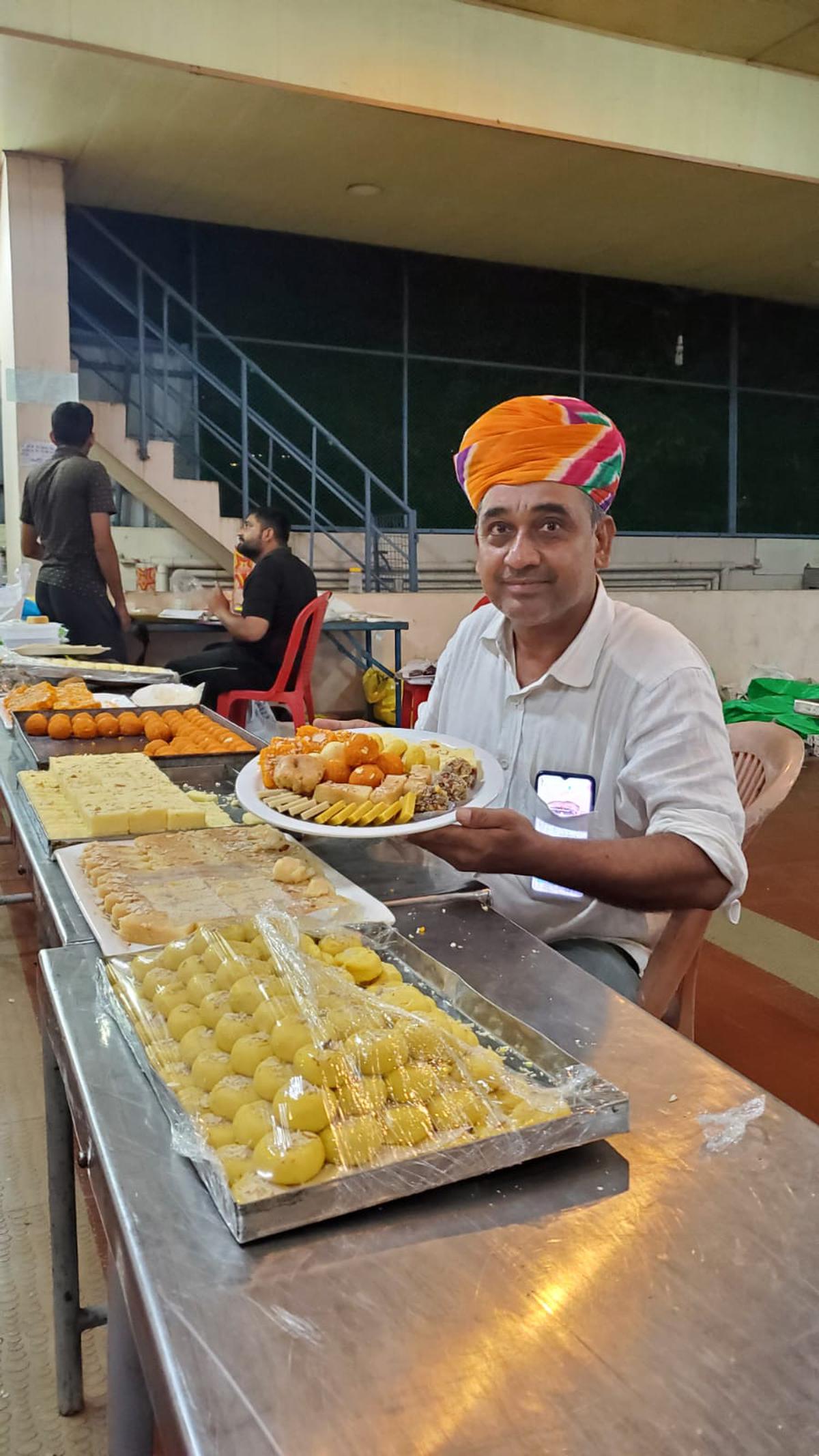As Kochi draws an increasingly diverse workforce from across the country, rural traditions and sweets from Uttar Pradesh, Bihar, Bengal and Orissa add a colorful aspect to the city’s festivities.
As Kochi draws an increasingly diverse workforce from across the country, rural traditions and sweets from Uttar Pradesh, Bihar, Bengal and Orissa add a colorful aspect to the city’s festivities.
Tell meIt is said to be one of the favorite foods of Goddess Lakshmi, around whom Diwali is celebrated. Made during the first sugarcane harvest, these coin-shaped candies are popular in villages in eastern UP, Bihar, Bengal and Orissa. another form, Khil Batasha, Another traditional celebration is sweets, in the shape of birds and animals.
These rural sweets are now available in Kochi, thanks to the growing workforce of North Indian migrant workers, who use them as a celebration on special occasions. As the influx of North Indian people to Kerala increases, to meet the demands in tourism, housekeeping, plantation areas and other sectors, festivals like Deepavali have acquired a new experience. While the first settlers from across the country, who came here mainly for trade, added a contemporary aspect with decorations and gifts, current settlers bring in more traditional touches.
“Not only the cuisine but the rural traditions that are lost in the metropolis can still be seen here,” says Sangeeta Kumar, a teacher at Tripunithura’s Choice School, originally from Ballia in Uttar Pradesh. For example, now locals can buy a traditional pack of brooms, lotus seeds (an alternative to lotus flowers), fox, cowries and small coconuts, all of which are offered to please the goddess.
Temporary Deepawali Market in Mundamveli
desi ghee sweets
“I see a significant change,” says Hukum Singh, who moved to Kochi from Jodhpur 18 years ago and founded Hukum Singh’s Bombay Caterers and Sweets, a North Indian vegetarian food catering service. He says there has been a “ten-fold increase” in food orders due to the growing North Indian community, and that customers also order sweets jalebi and kalakand “made from cow’s milk, ghee for occasions”.
Singh, who is currently busy placing a huge order of 2000 kg motipaak (square shaped motichoor laddus filled with khoya) from just one customer, says he is happy that the festival is being celebrated in full force after two years. They have called in 15 employees from their branches in Coonoor and Chennai to deal with the increasing orders. Their menu includes saffron flavored jalebi, moti pak, motichoor laddoos and cashew katli. Discussing its specialty, he says, “Motichoor laddus should have very fine grains (balls), the word means crushed pearls.”

Jodhpur to Hukum Singh Mithaiwala
Sushma Lodaya is known for retailing Gujarati food throughout the year from her home in Mattancherry, but during Diwali, she prefers typical traditional Gujarati sweets such as Meetha Ghughra, a sweet dumpling filled with a mixture of khoya and nuts) laddus and Mohanthal (a ) takes orders. Fudge made of gram flour, sugar and ghee). Their delicious preparations include Sukka Chivda, Ghatiya, Thiki Sev and the popular Mathri.
“Diwali sweets mainly use mawa, khoya and cashew,” says Amit Sarkar, who introduced Bengali sweets to Kerala in 2013 by starting Bikash Babu Sweets, a chain that has 15 outlets across the state. The government opened its first outlet in Kochi where they now have four – Panampilly Nagar, Kaloor Kadavantara, Kakkanad and Edapally.
sugar free sweets
Keeping in mind the consumers who want to eat healthier food, they have launched “Chineni Nahi” sweets this year. There are five sweets made from figs, dates and honey – Anjeer Ball, Rose Ball, Dry Fruit Burfi, Rose Kaju Katli, Cashew Tacos – to choose from. Another innovation is that the sweet boxes offer calorie count information printed on the inside. Amit says, “We have this Diwali sweets as well as Kolkata sweets like Abar Khabo, Cham-Cham and Rasgulla, which are made by special chefs from Rajasthan and Gujarat.” Boxes of Bikash Babu sweets range from ₹250 to ₹2,000.
“With the increasing presence of North Indians, we now get the authentic version of sweets,” says Ramanand Kamath, who has been placing permanent orders with Hukum Singh for 25 kg of sweets every year for the past seven years. He adds, “We used to eat North Indian sweets earlier too, but now the taste and appearance of the sweets are just as true to the original as the original Motichoor laddus.”